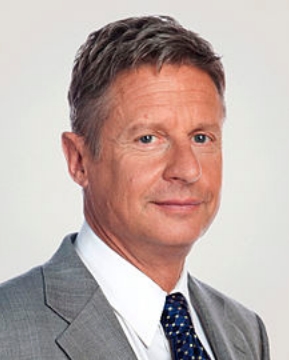What if we handled political action like sports?
by Will White
 Would politics be more popular if it were treated as a sport? The answer is probably yes, considering media coverage and public demand. Michigan’s Speaker of the House, Jase Bolger admits to “being drawn in to political gamesmanship” after he was caught trying to game the electoral system. Sports and politics compete for headlines, but sports has its own section of the paper, TV sports anchors, and even its own networks.
Would politics be more popular if it were treated as a sport? The answer is probably yes, considering media coverage and public demand. Michigan’s Speaker of the House, Jase Bolger admits to “being drawn in to political gamesmanship” after he was caught trying to game the electoral system. Sports and politics compete for headlines, but sports has its own section of the paper, TV sports anchors, and even its own networks.
Consider for a moment though if sports teams were covered like political parties. The only NFL teams covered would be The Patriots and Giants, expecting they will be the two in the Superbowl (or the Yankees and Red Sox in MLB). Of course that doesn’t happen, as even the worst teams are covered daily. New coaches or star players are widely reported.
Compare that to reporting on a star player signed by the third most popular team in the National Political League (NPL), which received almost no media play.
The star player is Gary Johnson, a two-term Governor of New Mexico who joined the improving Libertarian team after being sidelined by the Republicans.
Countless articles plead for more competition, driven by fan disappointment with Democrat and Republican teams. It is baffling why there is so little press about this top-tier quarterback, drafted at convention and a potential contender for MVP in the Presidential debates. Wannabe quarterbacks who left after fumbling were covered ad nauseam (Perry, Cain, Huntsman, etc). Even potential QB’s happy with their current contracts were well scouted (Christy, Bloomberg, Daniels, etc). As a proven winner still in contention, Gary Johnson deserves serious analysis.
Using much of Ron Paul’s play book (whose run for the end zone met stiff blocking), Johnson could be the wild card in November’s political playoffs. Results of the upcoming scrimmage at the Republican intramural match-up between Ron Paul’s offense and Romney’s defense may send a lot of unhappy fans to the Libertarian camp.
Climbing in national polls, Johnson will likely be in the Presidential debates. When his record as a fiscal conservative with a socially liberal play book is compared to the stats put up by Romney and Obama, it could be a game changer. Let’s hope that if the referees miss a call, play-by-play announcers will hold them accountable.
Of course, when the top two teams can rewrite the rule book to hamstring their competition, it’s not really fair. Avid fans realize the game is rigged, aiding the decline in popularity of the NPL over the last half century. If a Cinderella team emerges in the final months, analysts may exclaim “who could have predicted”. Of course, investigative journalism would reveal a sea change of disgruntled fans looking for better teams than the lesser of two evils.
Market studies show 36% of voters consider themselves independent, compared to only 31% Democrat and 21% Republican (Pew Center). The largest block of fans seems under served. Media is either ignoring market research, or simply enthralled by campaign ad money.
However, the average fan remains vital by influencing public opinion with letters to the editor, handmade signs, face-to-face encounters and voting with their pocketbooks. Perennial losers are often supported by loyal home team fans, but if the fans trust is betrayed by players or management, they are in trouble. If fans feel they have been duped, there will be consequences.
When Ron Paul fills the stadium while Romney plays before tiers of empty seats, it shows fans are tired of the same old plutocratic play book and the blind support of the dominant duopoly by myopic media enablers.
Perhaps this will be the start of our American Spring, with social networks preaching the freedom to support someone other than the anointed two. Maybe fans will overcome the faulty notion they waste support on perceived losers (“spoilers”) and finally vote with their hearts and conscience. Aiding this trend is the expansion team Americans Elect, hoping to change the point spread by an end run around the competition on the gridiron of cyberspace, with their fantasy league-style paradigm.
Regardless of the outcome of November’s NPL finals, sandlot political players that make it to the big leagues write their own story. Whether they will be discounted by pundits as inconsequential overnight sensations or respected as seasoned veterans leading underrated blue-collar teams to the finals is the real question. The answer is important, because there are much greater consequences from the political playoffs compared to the outcome of the Superbowl.
Consequently, political sport deserves the same inclusive, comprehensive reporting that other major sports receive.
This post has been read 1614 times!


